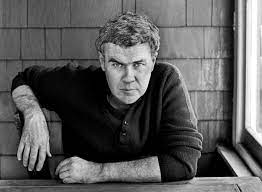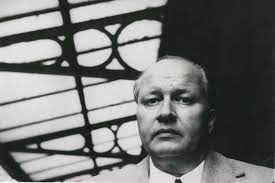
They say man is a storytelling animal, which therefor means he is a story-listening animal.
Children love story time, of course, but adults do as well. Teachers know that high school seniors will be as rapt to a great story read aloud as kindergarteners will. As for movies and the theater and television? One big, ear-and-eye-popping story.
In his book, Minds Made for Stories, Thomas Newkirk argues that all writing–expository, persuasive, descriptive–is essentially narrative at its root. Jonathan Gottschall, meanwhile, put out a bestselling book in 2012 called The Storytelling Animal: How Stories Make Us Human. His thesis? You must be some kind of monster if your dislike stories (never mind that monsters make for wonderful stories, as the dark space under your bed can testify).
It’s hard to argue with all this, right? We are surrounded every day by unfolding storylines. Our lives are storylines, in fact. Ones where Free Will steps into the ring to do battle with Fate on a daily basis. We either write our own lives or watch helplessly as our lives get written for us.
Into this end-of-story fray steps William H. Gass. In his essay, “Finding a Form,” he begs to differ with the story enthusiasts. With relish, even! Hark:
“If words find comfort in the sentence’s syntactical handclasp, and sentences find the proper place of pieces of furniture in the rhetorical space of the paragraph, what shall control each scene as it develops, form the fiction finally as a whole?
“Well, the old answer was always: plot. It’s a terrible word in English, unless one is thinking of some second-rate conspiracy, a meaning it serves very well. Otherwise, it stands for an error for which there’s no longer an excuse. There’s bird drop, horse plop, and novel plot. Story is what can be taken out of the fiction and made into a movie. Story is what you tell people when they embarrass you by asking what your novel is about. Story is what you do to clean up life and make God into a good burgher who manages the world like a business. History is often written as a story so that it can seem to have a purpose, to be on its way somewhere; because stories deny that life is no more than an endlessly muddled middle; they beg each length of it to have a beginning and end like a ballgame or a banquet. Stories are sneaky justifications. You can buy stories at the store, where they are a dime a dozen. Stories are interesting only when they are floors in a building. Stories are a bore. What one wants to do with stories is screw them up. Stories ought to be in pictures. They’re wonderful to see.
“Still, a little story gets into everything. Thank the Ghost of Fictions Past for that.”
An amusing foray, I found it–especially the word play: “There’s bird drop, horse plop, and novel plot.” And what about this: “Stories are interesting only when they are floors in a building.”
God save us from the 13th story, eh?
For poets, Gass’s rant is inspirational in its way, for which genre “screws stories up” more than poetry? Yes, yes, we have narrative poems, and we have those who love them. But more often the Hansel-and-Gretel trail is lost in the dark wood of a poem. Dark and lovely wood, one hopes.
I once wrote a young adult novel that actually got a reading and a handwritten reply from an editor at a top publishing house. Her rejection apologies were all about the plot, but she ended on a positive. “Beautiful descriptions,” she wrote. “The imagery is inspiring. Have you considered poetry?”
Truth be told, I had not. But the seed was planted, and when a seed germinates and pierces the earthy ceiling of possibilities above it, a story begins and rushes and commences the search for its “endlessly muddled middle.”
Therein lies the art, I think. No need to be spellbound with neatly-ribboned endings are advance-screen cheers for happily ever afters. Life is a muddle. And reading poems that muse on that muddle in unique and beautiful ways is a story unto itself. Leave plots to the rabble and the cemetery’s diggers. The end may just be another beginning.




